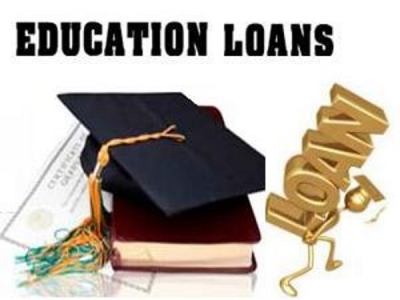Education plays a vital role in our lives, in other words, it is a weapon that develops knowledge and skills. It even improves one’s personality and attitude. Most importantly, Education affects employment opportunities. However, you may have noticed that a highly educated person is more likely to get a good job.
But not all people are financially strong enough to pursue higher education. If you are in a similar situation, you could apply for a mortgage. Education loans serve as a source of support for aspiring students and help them achieve their academic and career goals.
Education loans are one of the easiest ways for students to finance their higher education. There are several public and private banks from which a student can get a student loan. But before you go there remember, you will need to provide a specific set of documents and a completed application form.
Contents
Eligibility for Education Loans
As these loans are available to students who cannot afford the cost of higher education, applicants’ eligibility is determined by their academic performance as indicated on the previous test mark pages.
The essential conditions for student loan eligibility required to qualify for a loan are listed below:
- The person applying for the loan must be a citizen of India.
- You must ensure admission to reputable educational institutions in India or abroad.
- The age of the candidate must be between 18 and 35 years of age when applying for a loan.
- Must have a graduate / postgraduate degree or PG diploma.
- The applicant must have secure admission to a college or university affiliated with the UGC / AICTE / Govt. etc.
- Students pursuing full-time studies need to have an applicant who can be a parent/guardian or spouse/mother-in-law (in the case of a married couple).
If the loan is taken collectively it means that important information related to the guardian and student is required. Like the SBI website, here is a list of documents you will need to provide while taking out an education loan.
- Two passport photographs
- KYC documents (Voter ID and PAN card) include ID, residence, and proof of age
- Marking paper for the final examination of suitability for school subjects and degrees in India
- Proof of admission to the study
- Course cost schedule
- Copies of the letter confirming the scholarship, etc.
- Copies of foreign trade permits, if any.
- Bank Account Statement for the last six months of the borrower
- Salary tax inspection order not exceeding 2 years old
- A brief statement of the consumer’s assets and liabilities.
- If you are not a current bank customer you will also need to find out who you are and provide proof of accommodation.
- Academic qualifications (Conditions of eligibility for education loans)
Undergraduate courses – 18-27 years
Post Graduate Courses – 21-35 years
Medical studies – 27-55 years
Postdoctoral Studies – 27-65 years
Today taking out a loan for education has become easier with the addition of an online application. The applicant can now apply online for an education loan. The bank will only approve the loan if the applicant and the principal are contacted for real approval and payment of the student loan.
Tax Profit
Repayment of education loans is deducted under section 80E of the Income Tax Act. The annual deduction limit is Rs. 40,000 (both principal and interest). Loans took on higher education only – full-time courses for anyone with a degree or graduate degree, professional courses, and clean and practical science courses – which may need to be deducted. Deductions will be available for eight years from the date you start paying.
Equal access to higher education has been a major concern for the University Grants Commission. To this end, the Commission, in addition to encouraging colleges and universities to provide free financial assistance to successful but needy students, has contributed to the education system. The Reserve Bank of India (RBI) has issued guidelines on this in all commercial banks. A large number of banks have already introduced educational lending programs. Provided below are links to the relevant website of the individual banks that provide those sites.




